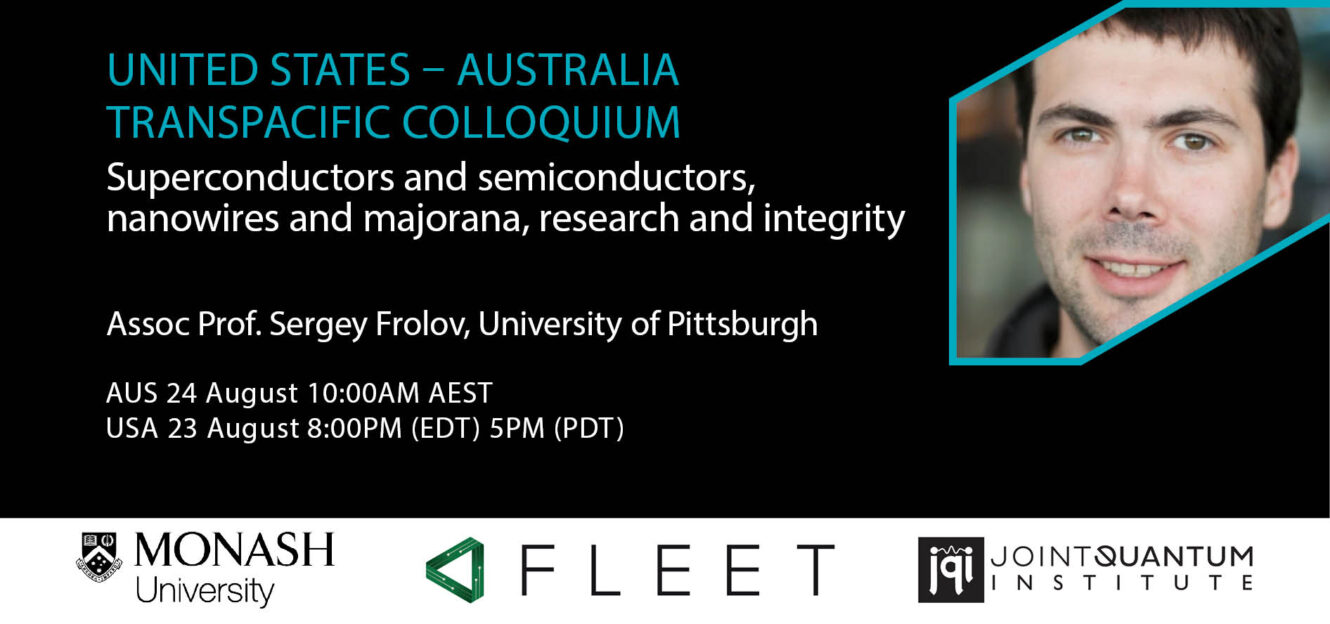-
24 Aug 2022
10:00 am - 11:00 am
Sergey Frolov, University of Pittsburgh
This talk will be on three topics, but in a way it is one. My research focus and passion is the proximity effect. It is when superconducting correlations are induced in a non-superconducting material. Because superconductivity is always tied to a spin order, proximity effects get especially rich when the non-superconductor is magnetic, or has strong spin-orbit coupling for electrons. Superconductivity induced by proximity must take into account these interactions in the new host, and can evolve into exotic phases such as triplet or topological superconductivity. This is where Majorana modes come in. They are edge states of a topological superconductor with unusual properties such as predicted non-Abelian exchange.
For the past decade I studied their possible manifestations in semiconductor nanowires, where superconductivity is subject to both spin-orbit and magnetic field effects at the same time. We got excited when we found experimental signatures, zero-bias peaks, that behaved as expected for Majorana modes. We shortly learned that another effect, non-topological Andreev states, can exhibit all of the same signatures. Despite these dual interpretations, papers claiming new Majorana sightings kept appearing. After I and my colleague Vincent Mourik looked into extra data from those papers we found unjustified data selection that invalidated conclusions. Several papers are under investigation as a result of our work. In my talk I want to touch on the implications of this, and sketch a path forward for our topic and for the broader field of quantum and condensed matter physics.
Assoc. Prof Frolov’s lab studies quantum phenomena in nanoscale electronic devices at cryogenic temperatures. We build our devices out of semiconductors such as nanowires, connected to superconducting contacts.
This talk is part of an ongoing series of talks by US and Australian researchers presenting novel developments in condensed matter and cold atomic physics, enriching connections between the two physics communities. Co-presented by FLEET, Monash School of Physics and Astronomy, and the Joint Quantum Institute.

